
Innere Stadt: The Heartbeat of Vienna
Innere Stadt, the first district of Vienna, is a timeless gem that perfectly encapsulates the city's rich history, stunning architecture, and vibrant culture. As you stroll through its cobblestone streets, you'll be surrounded by grandiose buildings, each narrating a story from a different era. The iconic St. Stephen's Cathedral, with its Gothic spires, stands proudly at the center, acting as both a spiritual and geographical landmark. Innere Stadt is not just about history; it's a lively hub filled with chic cafes, high-end boutiques, and world-class restaurants. You can enjoy a cup of Vienna's famous coffee at a traditional café or indulge in gourmet cuisine at one of the district's many fine dining establishments. The neighborhood's bustling atmosphere is complemented by street performers, art galleries, and museums, making it a haven for culture enthusiasts. For those seeking relaxation, the Innere Stadt offers numerous green spaces and parks where you can unwind amidst nature. The Stadtpark, with its beautiful sculptures and serene ponds, is perfect for a leisurely stroll. Whether you're a history buff, a foodie, or simply looking to soak in the local culture, Innere Stadt has something to offer for every type of traveler.
Local tips in Innere Stadt
- Visit St. Stephen's Cathedral early in the morning to avoid crowds.
- Take a guided walking tour to fully appreciate the historical significance of the area.
- Stop by Café Central for an authentic Viennese coffee experience.
- Consider purchasing a Vienna Pass for discounted entry to multiple attractions.
- Wear comfortable shoes as the best way to explore is on foot.
Innere Stadt: The Heartbeat of Vienna
Innere Stadt, the first district of Vienna, is a timeless gem that perfectly encapsulates the city's rich history, stunning architecture, and vibrant culture. As you stroll through its cobblestone streets, you'll be surrounded by grandiose buildings, each narrating a story from a different era. The iconic St. Stephen's Cathedral, with its Gothic spires, stands proudly at the center, acting as both a spiritual and geographical landmark. Innere Stadt is not just about history; it's a lively hub filled with chic cafes, high-end boutiques, and world-class restaurants. You can enjoy a cup of Vienna's famous coffee at a traditional café or indulge in gourmet cuisine at one of the district's many fine dining establishments. The neighborhood's bustling atmosphere is complemented by street performers, art galleries, and museums, making it a haven for culture enthusiasts. For those seeking relaxation, the Innere Stadt offers numerous green spaces and parks where you can unwind amidst nature. The Stadtpark, with its beautiful sculptures and serene ponds, is perfect for a leisurely stroll. Whether you're a history buff, a foodie, or simply looking to soak in the local culture, Innere Stadt has something to offer for every type of traveler.
Iconic landmarks you can’t miss
St. Stephen's Cathedral
Discover Vienna's iconic St. Stephen's Cathedral: a Gothic masterpiece with stunning views, rich history, and a vibrant cultural legacy in the heart of the city.
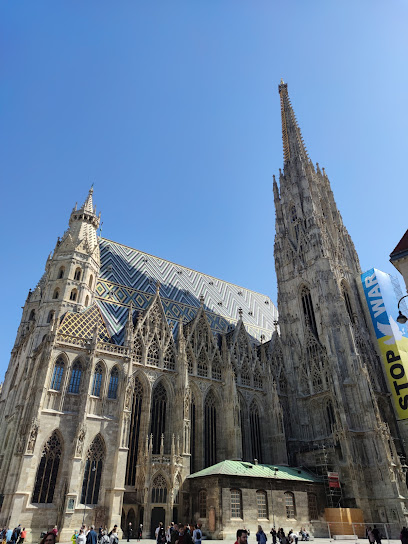
Hofburg
Explore the Hofburg Palace in Vienna, a historic imperial residence with museums, stunning architecture, and the world-famous Spanish Riding School.
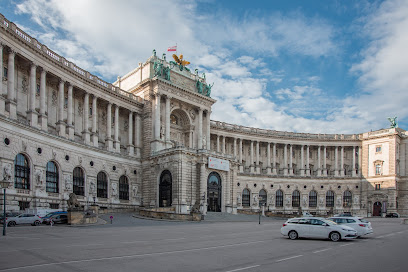
Heldenplatz
Explore Vienna's Heldenplatz: where imperial grandeur meets pivotal historical moments, offering a multifaceted experience for every visitor.

Burggarten
Escape to Vienna's Burggarten: a former imperial garden offering tranquility, art, and history in the heart of the city near the Hofburg Palace.
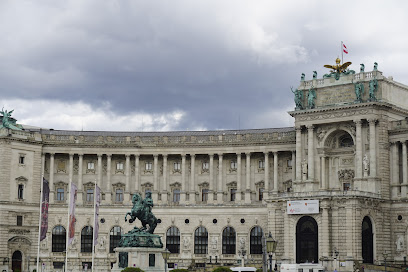
Column of Pest
A Baroque masterpiece in Vienna's Graben, commemorating the city's resilience after the Great Plague and a symbol of faith and triumph.
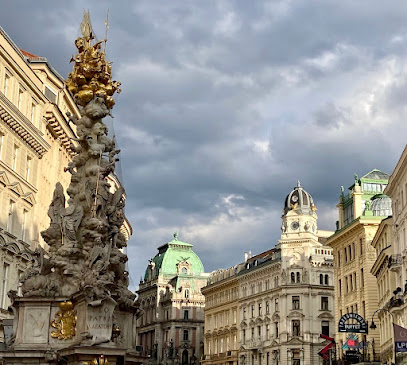
Stephansdom Nordturm
Ascend Stephansdom's North Tower for panoramic Vienna views and an up-close encounter with the Pummerin, Austria's largest bell, offering a unique perspective on the city's skyline.
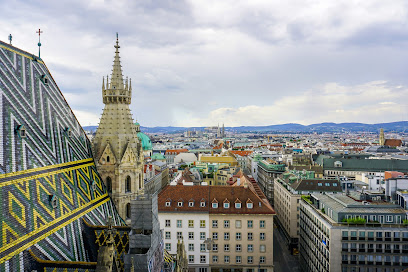
Altes Rathaus
Discover Vienna's historical heart at the Altes Rathaus, a blend of Baroque and Gothic architecture with centuries of civic significance.
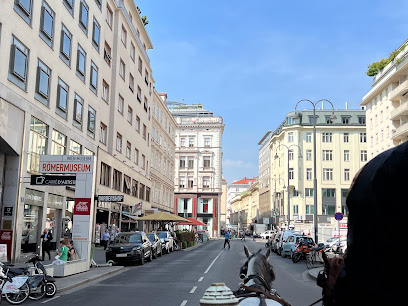
Mariensäule
A historic Marian column in Vienna's Am Hof square, commemorating the city's deliverance from invasion and a testament to Viennese faith and resilience.
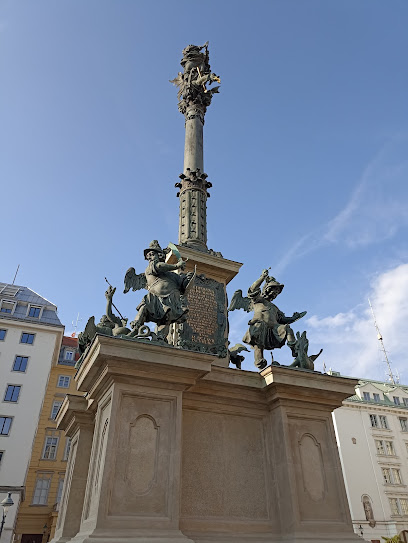
Hercules and the Nemean lion fountain
A mythological scene frozen in stone, the Hercules Fountain adds a touch of classical artistry to Vienna's serene Burggarten.
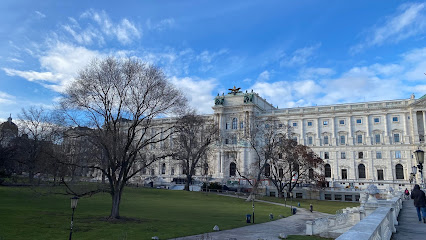
Rare secular gothic facade
Discover a hidden architectural gem in Vienna's historic Greek Quarter, where Gothic and Baroque styles blend seamlessly on Griechengasse.
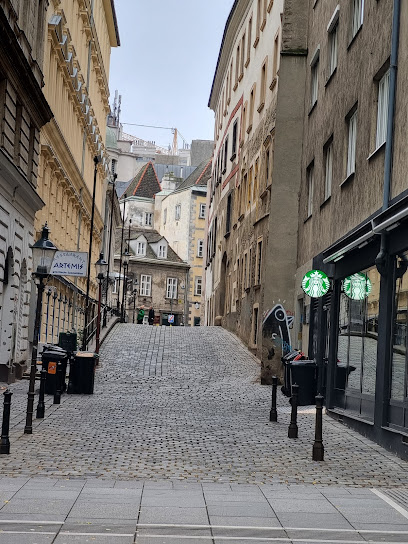
Unmissable attractions to see
Hundertwasser House
Experience Vienna's most colorful and unconventional apartment building, a vibrant expression of art and nature by Friedensreich Hundertwasser, challenging architectural norms.
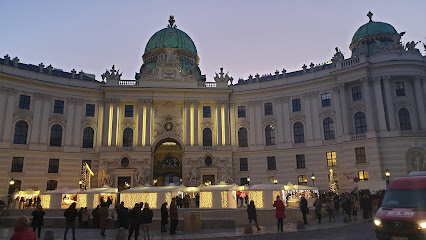
Time Travel Vienna
Experience 2000 years of Vienna's history with 5D cinema, animatronic figures, and virtual reality in the heart of the city's historic district.
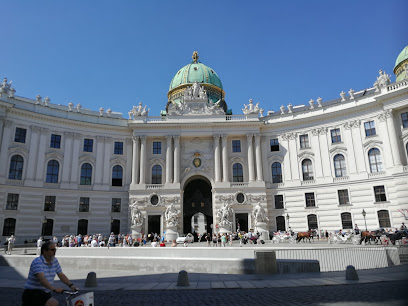
Essential places to dine
Zwölf Apostelkeller
Experience authentic Austrian cuisine in a historic cellar with live traditional music at Zwölf Apostelkeller, Vienna's culinary treasure.
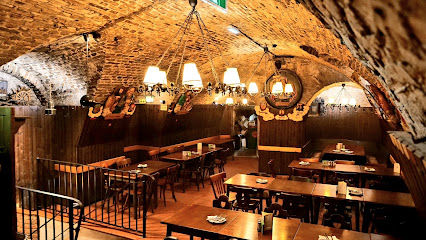
Restaurant Ofenloch
Savor authentic Austrian cuisine at Restaurant Ofenloch in Vienna - a culinary delight not to be missed!
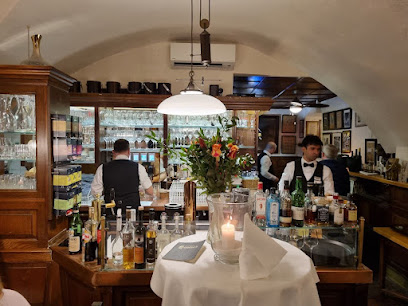
Stadtgraben
Discover authentic Austrian cuisine at Stadtgraben, where tradition meets taste in the heart of Vienna.
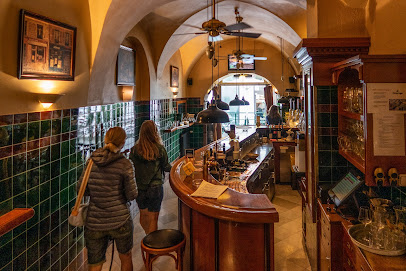
Schachtelwirt
Discover the flavors of Austria at Schachtelwirt: where tradition meets modernity in Vienna's vibrant culinary scene.
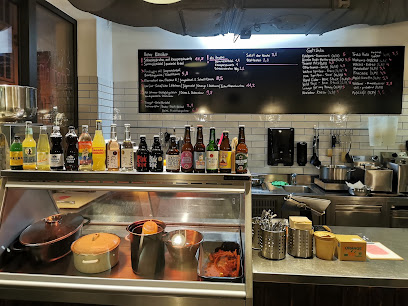
Restaurant Wienerin - 1010 Wien
Discover the flavors of Austria at Restaurant Wienerin - where tradition meets modernity in the heart of Vienna.
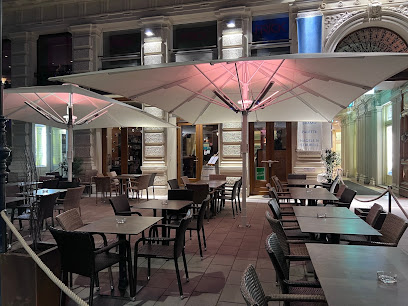
Patara Restaurant Vienna GmbH
Discover the essence of Thai cuisine at Patara Restaurant in Vienna - where traditional flavors meet modern elegance.
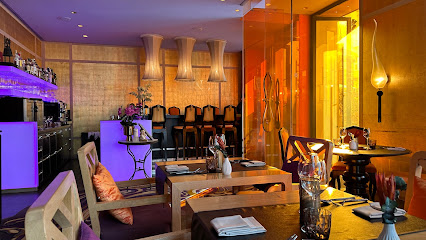
Restaurant Rote Bar
Discover exquisite fine dining at Restaurant Rote Bar in Vienna – where tradition meets culinary innovation for an unforgettable meal.
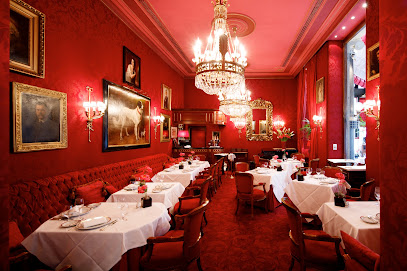
Liebsteinsky
Discover the essence of Austrian cuisine at Liebsteinsky, where tradition meets innovation in every bite.
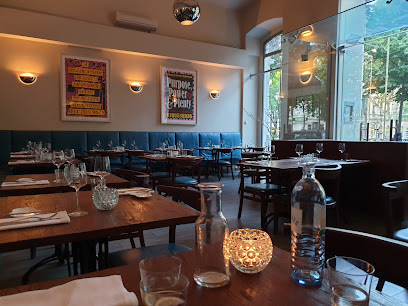
Loca Casual Fine Dining
Experience the best of Viennese cuisine at Loca Casual Fine Dining - where casual elegance meets culinary artistry.
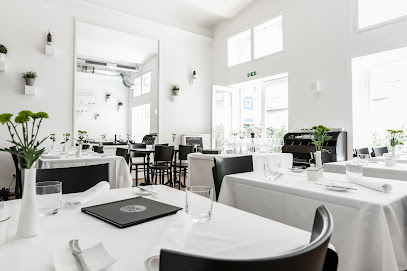
Restaurant Grüne Bar
Experience the pinnacle of fine dining at Restaurant Grüne Bar, where traditional Austrian flavors meet modern culinary excellence.
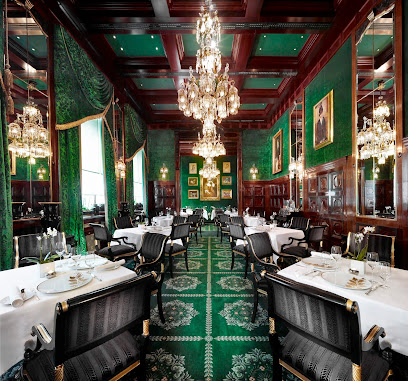
Markets, malls and hidden boutiques
World of Souvenirs
Explore the World of Souvenirs in Vienna, where authentic Austrian gifts and delightful local delicacies await every traveler.
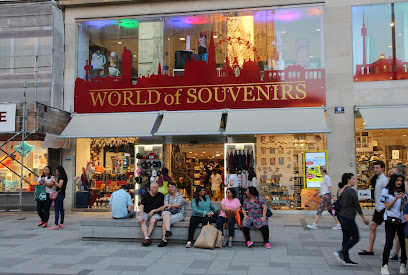
Planet Vienna
Explore Planet Vienna, your ultimate souvenir destination in the heart of Vienna, offering a wide range of unique gifts to cherish your memories.
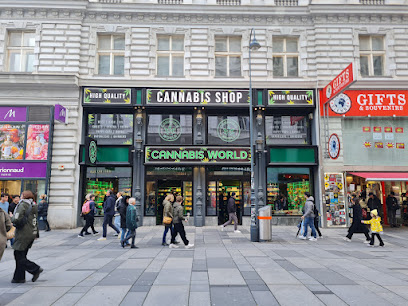
DIE VERMISCHTE WARENHANDLUNG
Explore the eclectic offerings of DIE VERMISCHTE WARENHANDLUNG, a must-visit gift shop in Vienna's historic Innere Stadt with local artisan flair.
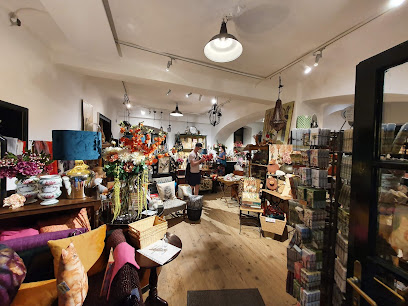
MAK Design Shop
Explore the MAK Design Shop in Vienna for unique gifts and contemporary design treasures that capture the essence of Austrian creativity.
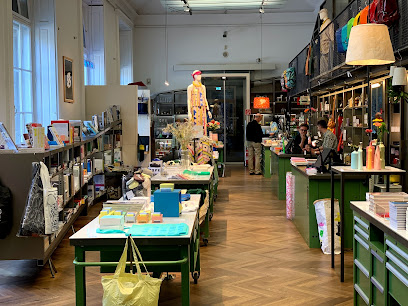
HAMTIL & SÖHNE Concept Store Vienna
Explore the creativity of Vienna at HAMTIL & SÖHNE Concept Store, where unique gifts and local artistry come together in a charming shopping experience.
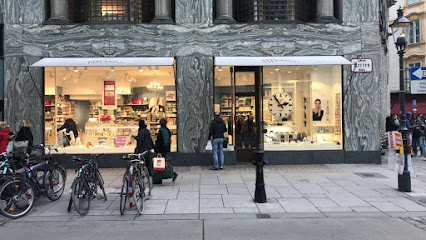
Imperial Shop Vienna
Explore the Imperial Shop Vienna for authentic Austrian souvenirs and unique treasures, all nestled in the historic Hofburg Palace.
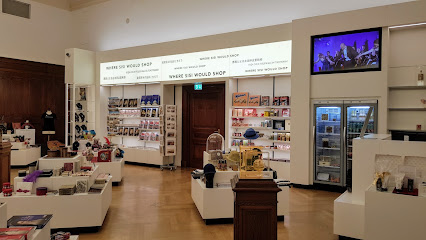
Boutique Chegini Vienna
Discover the elegance of Boutique Chegini Vienna, where high-quality fashion meets the charm of the historic Innere Stadt.
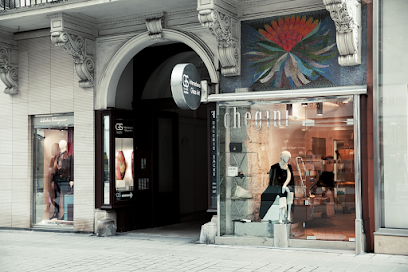
Souvenirs Vienna
Explore the charm of Vienna through unique souvenirs at Souvenirs Vienna, where every item tells a story of the city's rich heritage.
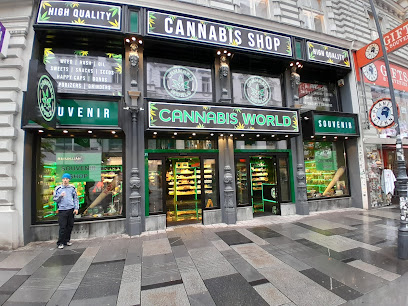
The Craftshop Vienna
Explore The Craftshop Vienna for exquisite handmade costume jewelry that captures the essence of local craftsmanship and artistry.
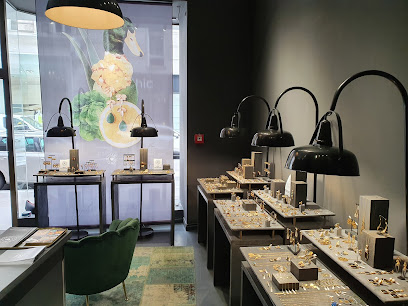
LEANSCHI & friends e.U. | Concept Store(s) & Retail Services
Explore LEANSCHI & Friends in Vienna for unique gifts, local crafts, and a charming shopping experience in the heart of the city.
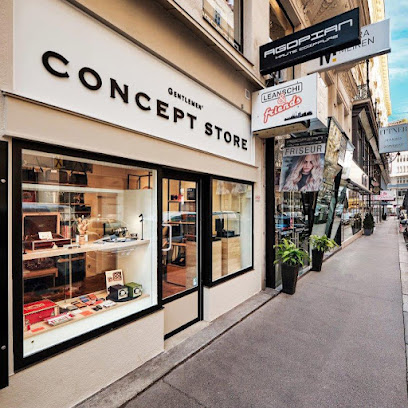
Essential bars & hidden hideouts
Loos American Bar
Discover the elegance and flavor of Vienna's nightlife at Loos American Bar, a historic cocktail haven known for its exquisite drinks and stylish ambiance.
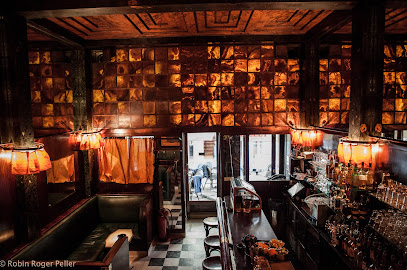
Needle Vinyl Bar
Discover the unique blend of cocktails and vinyl at Needle Vinyl Bar, Vienna's vibrant hotspot for music and mixology.
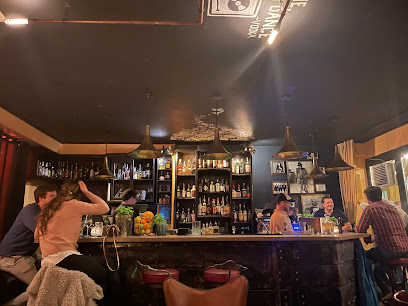
Bar Campari
Experience the vibrant atmosphere and exquisite cuisine at Bar Campari, a must-visit dining destination in the heart of Vienna.
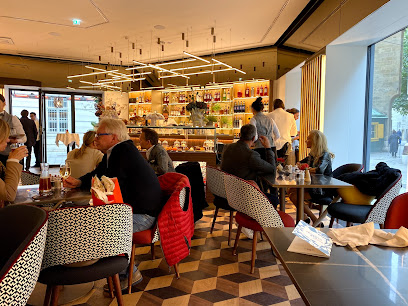
The Look Bar
Discover the vibrant nightlife at The Look Bar, a hidden gem in Vienna offering affordable drinks and an eclectic atmosphere that invites socializing.
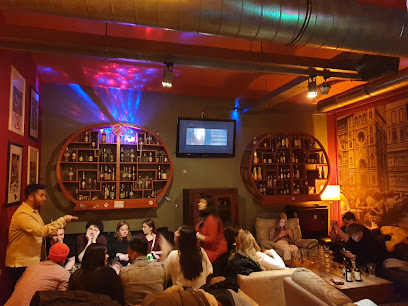
Roberto American Bar
Roberto American Bar: A premier cocktail bar in Vienna offering a vibrant atmosphere and expertly crafted drinks for a memorable night out.
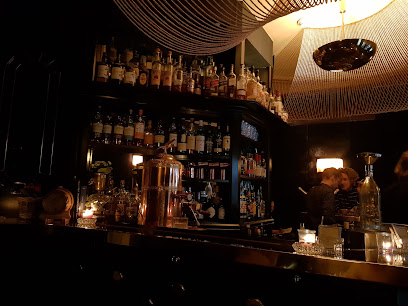
First American Bar
Experience the vibrant nightlife of Vienna at First American Bar, where expertly crafted cocktails meet a warm and inviting atmosphere.
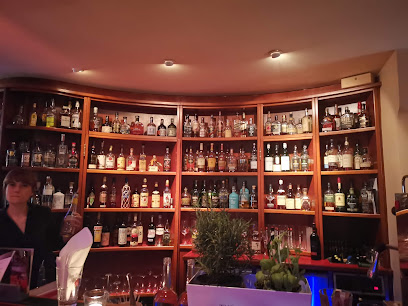
Blue Bar Vienna
Discover the vibrant nightlife of Vienna at Blue Bar, where chic ambiance meets expertly crafted cocktails in the heart of the city.
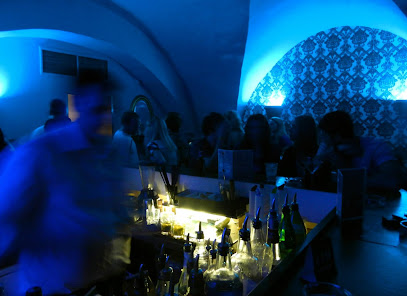
Truth & Dare | Cocktailbar | Bar | Mixology Best Bar Austria 2023 & 2024
Discover the art of mixology at Truth & Dare, Vienna's top cocktail bar, offering innovative drinks in a stylish and inviting setting.
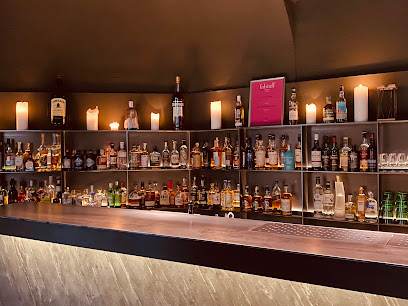
Funky Monkey Bar
Discover Funky Monkey Bar in Vienna - a vibrant nightlife hotspot offering eclectic drinks and a welcoming atmosphere for all visitors.
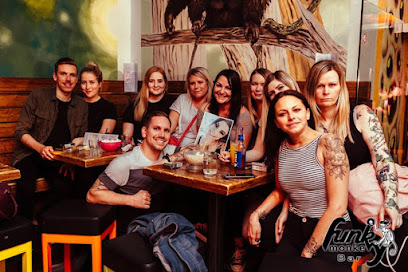
New York Bar and Music
Discover the lively atmosphere and live music at New York Bar and Music, a perfect destination for cocktail lovers and music enthusiasts in Vienna.
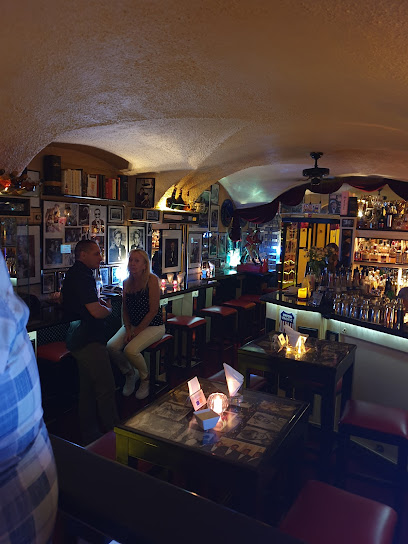
Local Phrases
-
- HelloServus
[ser-voos] - GoodbyeAuf Wiedersehen
[ouf vee-der-zay-en] - YesJa
[yah] - NoNein
[nine] - Please/You're welcomeBitte
[bih-teh] - Thank youDanke
[dahn-keh] - Excuse me/SorryEntschuldigung
[ent-shool-dee-goong] - How are you?Wie geht's?
[vee gayts] - Fine. And you?Gut. Und dir?
[goot. oont deer] - Do you speak English?Sprechen Sie Englisch?
[shpre-khen zee eng-leesh] - I don't understandIch verstehe nicht
[eekh fair-shteh-eh neekt]
- HelloServus
-
- I'd like to see the menu, pleaseIch hätte gerne die Speisekarte, bitte
[eekh ha-teh gehr-neh dee shpy-ze-kahr-teh, bih-teh] - I don't eat meatIch esse kein Fleisch
[eekh ess-eh kine fly-sh] - Cheers!Prost!
[prohst] - I would like to pay, pleaseIch möchte bitte zahlen
[eekh mohkh-teh bih-teh tsah-len]
- I'd like to see the menu, pleaseIch hätte gerne die Speisekarte, bitte
-
- Help!Hilfe!
[hil-feh] - Go away!Geh weg!
[geh vehg] - Call the Police!Rufen Sie die Polizei!
[roo-fen zee dee poh-lee-tsay] - Call a doctor!Rufen Sie einen Arzt!
[roo-fen zee i-nen ahrts] - I'm lostIch habe mich verirrt
[eekh hah-beh meesh feh-rirt] - I'm illMir ist schlecht
[meer ist shlehkt]
- Help!Hilfe!
-
- I'd like to buy...Ich möchte ... kaufen
[eekh mohkh-teh ... kou-fen] - I'm just lookingIch schaue nur
[eekh shou-eh noor] - How much is it?Wie viel kostet das?
[vee feel kohs-tet dahs] - That's too expensiveDas ist zu teuer
[dahs eest tsoo toy-er] - Can you lower the price?Können Sie den Preis senken?
[kern-en zee dehn prees zehn-ken]
- I'd like to buy...Ich möchte ... kaufen
-
- What time is it?Wie spät ist es?
[vee shpeht eest es] - It's one o'clockEs ist ein Uhr
[es eest iyn oor] - Half past (10)Halb (zehn)
[halb (tsayn)] - MorningMorgen
[mohr-gen] - AfternoonNachmittag
[nahkh-mee-tahg] - EveningAbend
[ah-bent] - YesterdayGestern
[geh-shtern] - TodayHeute
[hoi-teh] - TomorrowMorgen
[mohr-gen] - 1Eins
[iyns] - 2Zwei
[tsvai] - 3Drei
[dry] - 4Vier
[feer] - 5Fünf
[foonf] - 6Sechs
[zeks] - 7Sieben
[zee-ben] - 8Acht
[ahkht] - 9Neun
[noyn] - 10Zehn
[tsayn]
- What time is it?Wie spät ist es?
-
- Where's a/the...?Wo ist ein/der...?
[voh eest iyn/dehr] - What's the address?Wie ist die Adresse?
[vee eest dee ah-dreh-say] - Can you show me (on the map)?Können Sie mir zeigen (auf der Karte)?
[kern-en zee meer tsay-gen (ouf dehr kar-teh)] - When's the next (bus)?Wann kommt der nächste (Bus)?
[vahn kohmt dehr nykhs-teh (boos)] - A ticket (to ....)Eine Fahrkarte (nach ....)
[iyn-eh fahr-kahr-teh (nahkh)]
- Where's a/the...?Wo ist ein/der...?
History of Innere Stadt
-
The Innere Stadt, Vienna's historic core, traces its origins back to the Roman settlement of Vindobona in the 1st century AD. This strategic outpost along the Danube River was crucial for the Roman Empire, serving as a military camp and a trading hub. Remnants of Roman walls and buildings can still be seen today, providing a glimpse into the area's ancient past.
-
By the 9th century, Vindobona evolved into a significant settlement. The establishment of the Babenberg dynasty in the 12th century led to the construction of fortifications and the expansion of the city. The Innere Stadt began to flourish as a center for trade and culture, marked by the construction of the first city walls, which would define its boundaries for centuries.
-
The 14th century heralded the construction of St. Stephen's Cathedral, a Gothic masterpiece that became the heart of Vienna. Its iconic spire and intricate architecture symbolize the city's resilience and artistic ambition. The cathedral served not only as a religious center but also as a focal point for civic life and identity in the growing city.
-
During the Habsburg dynasty's rule, particularly in the 17th and 18th centuries, the Innere Stadt underwent a dramatic transformation. Baroque architecture flourished, with the construction of opulent palaces and grand public spaces. The Hofburg Palace became the imperial residence, reflecting the power and prestige of the Habsburgs while shaping the cultural landscape of Vienna.
-
The 19th century was a period of cultural renaissance in the Innere Stadt, with Vienna becoming a hub for music, art, and philosophy. The establishment of institutions such as the Vienna State Opera and the Museum of Fine Arts solidified the area’s status as a cultural epicenter. This era also saw the proliferation of cafés, which became vital social and intellectual gathering places.
-
The devastation of World War II left a significant mark on the Innere Stadt, with many historical buildings damaged or destroyed. The post-war period focused on reconstruction and preservation, leading to the restoration of many architectural treasures. This effort underscored the importance of the neighborhood's cultural heritage and its role in Vienna's identity.
-
In 2001, the Innere Stadt was designated a UNESCO World Heritage Site, recognizing its outstanding universal value. Today, it stands as a vibrant blend of history and modernity, where ancient streets coexist with contemporary life. The ongoing preservation efforts highlight the importance of maintaining the rich tapestry of history that defines this iconic neighborhood.
Innere Stadt Essentials
-
Innere Stadt is centrally located in Vienna and is easily accessible from other neighborhoods. The U-Bahn (subway) lines U1 and U3 connect to the Stephansplatz station, which is at the heart of Innere Stadt. Trams and buses also serve the area well. From Vienna International Airport, you can take the City Airport Train (CAT) to Landstraße and transfer to the U-Bahn or take a taxi directly to the city center.
-
Innere Stadt is pedestrian-friendly, and many attractions are within walking distance. The public transportation system, including trams and buses, is efficient and can be used to navigate the area. Bicycles can also be rented from numerous bike-sharing services available throughout the city. Consider using the Wiener Linien app to plan your routes and check schedules.
-
Innere Stadt is generally safe for tourists. However, like in any major city, it is advisable to stay vigilant, especially in crowded areas such as tourist attractions and markets. Petty crimes, such as pickpocketing, can occur. Avoid poorly lit streets at night and be cautious around public transport hubs. There are no specific high-crime areas within the district targeting tourists.
-
In case of emergencies, dial 112 for police, fire, or medical assistance. The local hospitals are equipped to handle various emergencies, and it is advisable to have travel insurance for medical coverage. Pharmacies are available for minor health issues, and many have English-speaking staff.
-
Fashion: Do dress appropriately when visiting sacred sites; avoiding overly casual or revealing clothing is recommended. Religion: Do respect local customs, especially in churches; covering shoulders and knees is advisable. Public Transport: Do keep noise to a minimum and offer your seat to those in need. Don't eat or drink on public transport. Greetings: Do greet with a firm handshake and maintain eye contact. Eating & Drinking: Do try local Viennese coffee and pastries; don’t rush your meal or dining experience, as it's considered impolite.
-
To experience Innere Stadt like a local, start your day with a coffee at a traditional Viennese café, such as Café Central. Stroll the streets early in the morning to avoid crowds. Explore hidden gems, such as the small shops and markets off the main tourist paths. Attend a local concert or opera at the Wiener Staatsoper for a true cultural immersion. Don't forget to ask locals for their favorite spots, as they often know the best-kept secrets of the city.
Nearby Cities to Innere Stadt
-
Things To Do in Eisenstadt
-
Things To Do in Bratislava
-
Things To Do in Sopron
-
Things To Do in Trnava
-
Things To Do in Szombathely
-
Things To Do in Brno
-
Things To Do in Gyor
-
Things To Do in Trenčín
-
Things To Do in Graz
-
Things To Do in Linz
-
Things To Do in Zalaegerszeg
-
Things To Do in České Budějovice
-
Things To Do in Český Krumlov
-
Things To Do in Olomouc
-
Things To Do in Tatabanya













